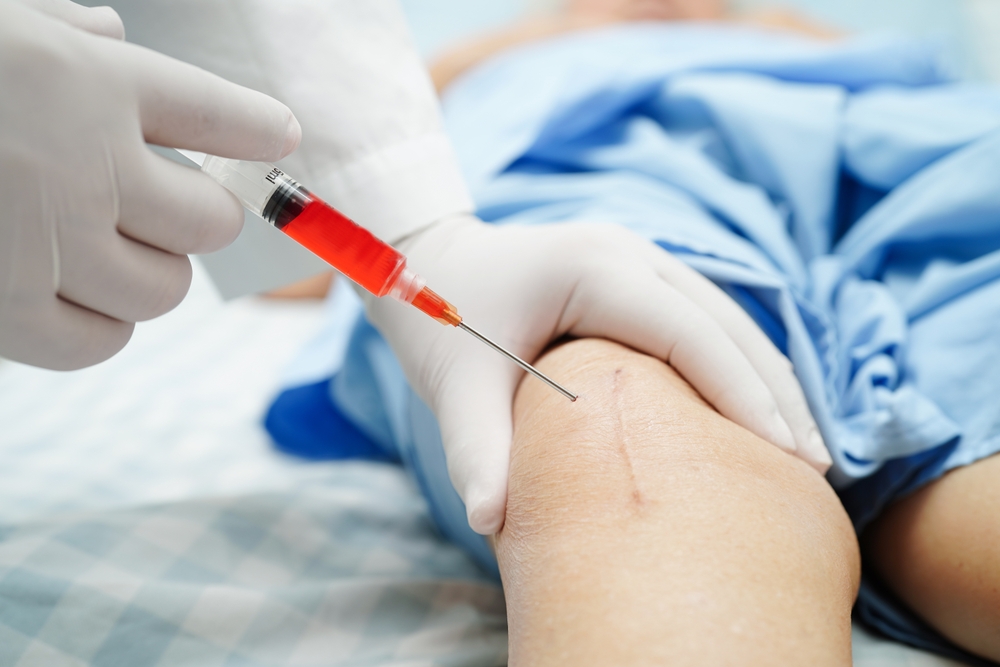Celebrities today seem to be getting previously unheard-of treatments just to continue to look as young and beautiful as possible. Cosmetic treatments alone have become almost ubiquitous around Hollywood, with actors big and small looking to get fixes for minor imperfections.
Some of those treatments, however, go right to the roots of health, like stem cell therapies. In recent years, headlines have been abuzz with story after story of celebrities getting stem cell treatments. The reasons why range from helping with chronic pain all the way to anti-aging.
So, why are celebrities getting stem cell treatments? We’ll get right into it:
Which Celebrities are Getting Stem Cell Treatments?
There are many celebrities today who have dipped into the world of regenerative medicine. Those turning to this treatment are typically older, yes, or they are in sports. Regardless of your age, however, stem cell therapies can help you with minimal side effects.
Just have a quick look at the celebrities who receive stem cells for anti-aging, to help with sports injuries, and more:
- Ozzy Osbourne: Ozzy Osbourne has multiple health conditions, including Parkinson’s disease, as well as a tumor on his vertebrae. To help with these conditions, he has received several treatments.
- John Cleese: This Monty Python actor goes for annual treatments of this regenerative medicine treatment to combat aging. He believes he sees a difference in both his appearance and how he feels.
- Cristiano Ronaldo: This famous soccer player has used stem cell treatments to help heal from a knee injury.
Of course, celebrities have large disposable incomes, allowing them to easily take on the stem cell therapy cost out of pocket. This means they can afford to regularly undergo multiple or ongoing sessions as part of their overall health strategy.
Why Are Celebrities Getting Stem Cell Treatments?
Celebrities are getting stem cell injections for a number of reasons. What are stem cell injections, you ask? They’re either stem cells administered via an IV, or they are an injection into a targeted area (for example, a knee injury).
Thanks to these two methods, celebrities have been getting stem cell treatments for these key reasons:
To Improve Aging
Several celebrities get stem cell treatments simply to help them look and feel younger or as part of their overall health strategy. This includes people like John Cleese, Mel Gibson, and even Angelina Jolie. Some of these celebrities are very vocal about endorsing stem cells and say they believe they look and feel younger. Others haven’t commented on it specifically.
To Help Combat Health Concerns
Some celebrities living with chronic conditions have turned to stem cell injections to help minimize symptoms and find relief.
To Help Heal Injuries Faster
One of the largest celebrity groups that get stem cell treatments is, of course, sports stars. They use stem cell therapies, thanks to their minimal side effects and potential healing benefits, in a bid to repair sports injuries as quickly and efficiently as possible.
What does the Science Say?
Celebrities get up to plenty of experimental and sometimes even ill-advised treatments just because they have the money, so you may be wondering if there’s science to back up their claims.
Before we get into how effective these treatments are, it’s important to know what are stem cells, and how they work.
In simplest terms, stem cells are the master cell. They can become any type of cell in the human body when we are just embryos (and do just that as we develop). As adults, we do still have stem cells, but these are more locked in. For example, bone marrow stem cells can only become blood cells or bone marrow cells.
There are two technologies currently being investigated on how to get those embryonic cells without touching actual embryos, but this science is still very new. For now, we here at Bioxcellerator are using stem cells sourced from donated umbilical cords, which are considered juvenile and, most importantly, don’t have a surface protein on them.
This is important because, without that protein, your body is more likely to accept those stem cells, allowing them to get to work. Otherwise, your immune system will likely identify the foreign cells and destroy them before they can provide any kind of benefit.
So, Is There Evidence Stem Cell Therapy Works?
There is absolutely evidence that stem cell therapy works. For one, it is a treatment option for those with blood cancers like leukemia. There is also more evidence of stem cells helping chronic conditions and injuries.
What isn’t confirmed yet is stem cells’ role in anti-aging.
Now, all of these goals are still being researched. This is because long-term studies still need to be conducted, and concluded. Until there is enough long-term conclusive studies, this treatment is still largely unconfirmed.
There are also many new technologies and leaps in the world of stem cell research, meaning that the playing field is constantly evolving. Each one of those new breakthroughs needs to be thoroughly tested, studied, and then ratified.
So, while there is some evidence that stem cell therapy works, it isn’t entirely conclusive yet. Once it is, insurance coverage for this treatment option is expected to expand, giving more the opportunity to help heal from chronic conditions.
For now, anything unrelated to blood diseases is still considered experimental, so you’ll need to look at existing case studies, talk to our experts, and decide for yourself if you want to follow in celebrities’ footsteps.
Can I Get Stem Cell Therapy?
Yes, you can receive stem cells yourself, especially if you want help treating a chronic condition. The only thing you need to remember is that stem cell therapy is only covered through insurance if you are treating bone or blood diseases, and even then, it depends entirely on the condition itself.
This means you will need to also pay out of pocket, though you can set up a payment plan to help make it easier on you. We also take you through an in-depth consultation and then confer with our experts to ensure you are a good candidate for this treatment.
To book that consultation, have a look at the locations we cover and get in touch with your nearest clinic.


